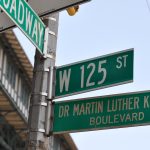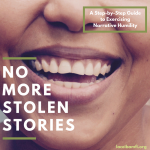Would You Rather Fly or be Invisible?
This question of flight vs invisibility was the topic du jour for party-goers in this episode of This American Life back in 2001. Although a very informal survey, the set of very telling answers may give us insight to our approaches to just about anything, including the rally cry to end poverty.
One person revealed that they would immediately become a thief with the power of invisibility. Another person said they would fly to Paris any time they felt like doing so. Interestingly enough, no one actually chose to fight crime with their new ability or to use their power for the greater good. Their logic: that simply just being able to fly or become invisible was not enough to be a superhero. The question then really becomes about how we’d like to navigate the world with this new power. In the case of the sidekick, it becomes a question of how we want to take action for the greater good.
The big voices you hear talking about ending poverty – folks like Bill and Melinda Gates, Bono, and even institutions like the United Nations- strike me as the folks that would choose flight. The ability to fly is an external and public facing power- when you’re in the sky, it’s hard to not be seen. In other words, it is difficult to fly under the radar really. Many “good do-ers” take a similar approach to ending poverty: big campaigns with ambitious goals that receive praise from the global community, all very much in the public eye to praise and congratulate. These are the folks that feed the “White Man’s Burden” narrative, a tired and stale hero’s tale. Often times these are the faces of progress and development.
So does this mean for us as sidekicks that we should choose to be invisible? If we did choose invisibility, there isn’t anything outwardly “honorable or wholesome” about the sidekick’s journey. The teammate on the sidelines does not get any of the praise or acknowledgement like the flyer. Even if we stayed after hours, sacrificed our own time and resources, we might not be celebrated or recognized. Choosing invisibility means that from the outside looking in, a sidekick’s world seems to essentially remain unchanged. No glory, no limelight.
So let’s say we’re sidekicks who have chosen invisibility in the realm of addressing poverty. There is a myriad of deep philosophical questions that drive me to existentialist brinks: How can these systems be so cruel? Why doesn’t anyone care? Who am I? Why am I doing this? Does it matter? Am I actually making a difference? As in the This American Life episode, this deeper reflection pinches a nerve and forces us to entertain the question at the core: Will I become the person I hope to be, or the person I fear I actually am? Now stay with me on this train.
All of these questions that “invisibility” (in its metaphorical sense) pushes forward are important. One thing, of the many, that I’ve learned in my journey for social justice thus far is that these questions do not disappear. This work requires us to face our demons. Deep reflection is needed for true transformational change. Through my work at IDEX (soon to be Thousand Currents), I am very fortunate to be connected to many local leaders in the Global South. They have taught me that long term change begins with cultivating a deep love for all living things.
Maria Estela Barco Huerta , General Coordinator of Desarollo Económica Social de los Mexicanos Indígenas (DESMI) in Chiapas, Mexico, explains this as Buen Vivir. Buen Vivir is a way of life that is in deep harmony with the world around us; it is a concept of balanced, collective wellness that begins with the heart. Huerta explains this aspect of the Mayan Tzeltal cosmovision:
“Everyone and every species has a spirit. Everyone has life… This makes me think about my duty to be in harmony with nature and others. If my spirit or heart is sick, or if I don’t recognize this in others, I cannot have a healthy life…the heart is at the core of everything. It’s where our pain, and our happiness comes from. In indigenous languages, asking, “O’tan, pusikal?” is the way of saying, “How are you?” What it means is, “How is your heart doing?” or “What is your heart saying?”…the heart feels and the heart talks. This is why DESMI’s founder always talked about putting our hearts in our work.”
Being a partner (or a sidekick) to organizations like DESMI requires constant listening to our hearts and self-reflection, similar to what the ability of invisibility prompts in an individual. It is an everyday practice of humility and commitment to keep learning.
As agents of change in the Global North, we are called to contextualize our privilege, access, and power. We must do better in identifying the dynamics created by our lack of invisibility. Nothing exists in a vacuum and our presence matters. We have impact for better or worse.
In a society increasingly seeking validation through Facebook and Twitter, it’s difficult to “stay invisible” and do the right thing. The process of self-reflection is not about “posting”; it demands doubt, questioning, and then growth.
As others keep flying over the problems of global poverty and injustice, the reality is that strengthening our sidekick role has a ripple effect that changes us and the world around us.
By Verónica Moreno (IDEX Community Engagement Manager)

 Previous Post
Previous Post Next Post
Next Post
Being invisible could and probably would mess with your head. So I chose fly
🤔 Yes I agree👍🏼